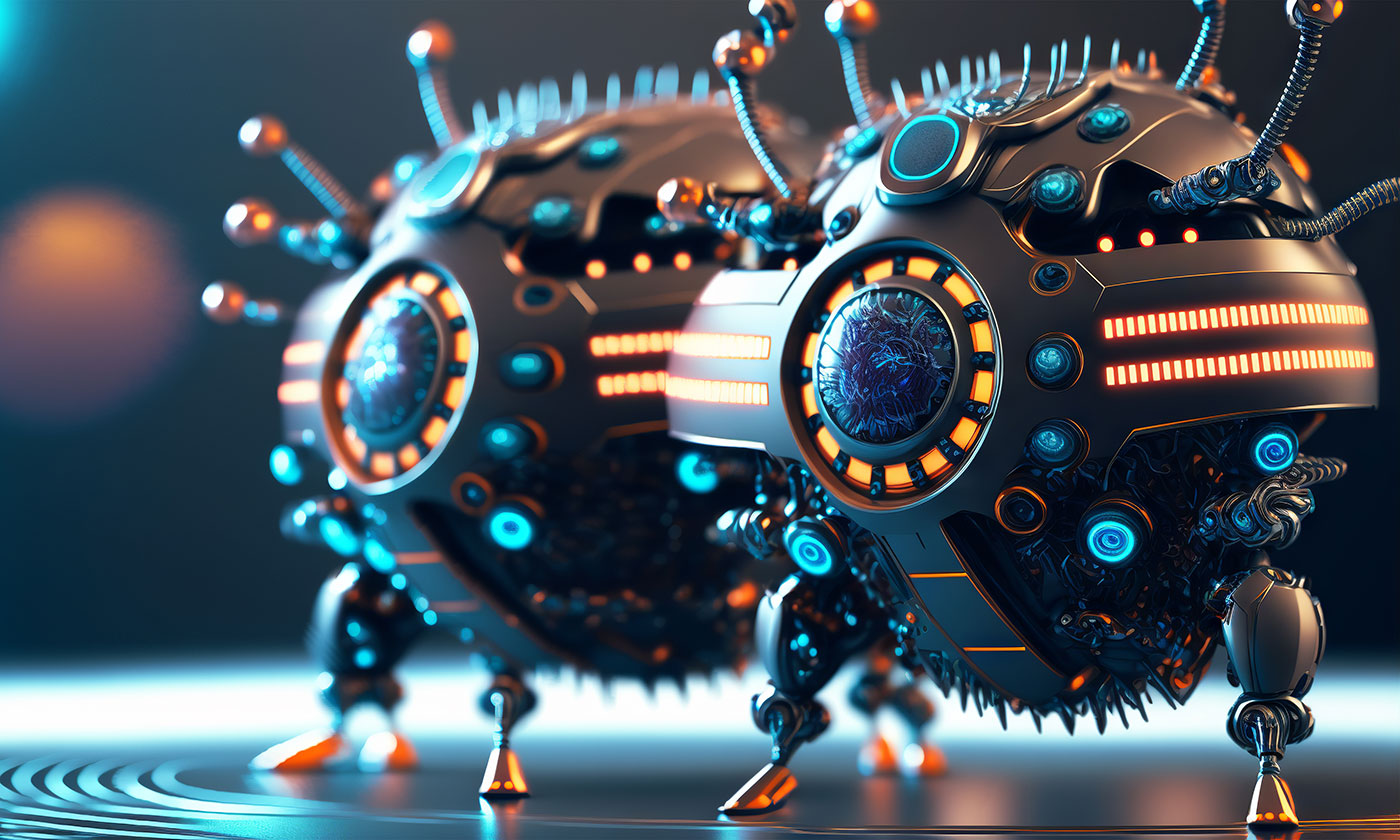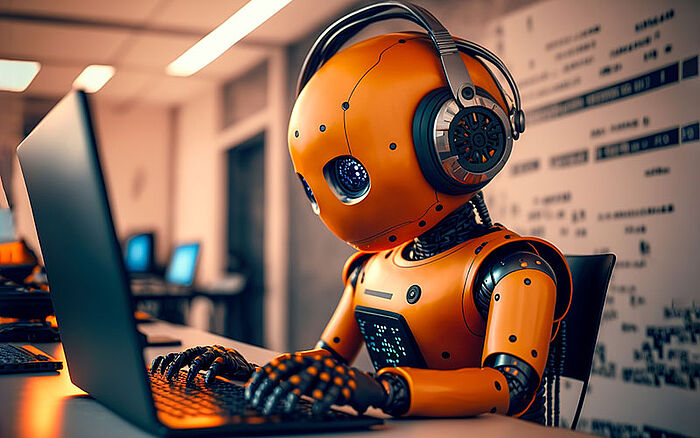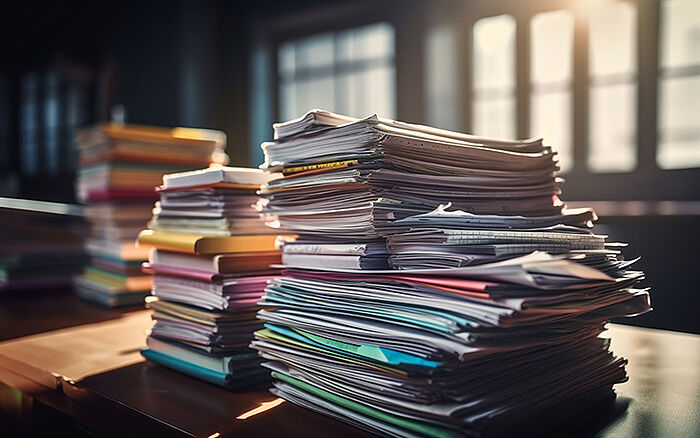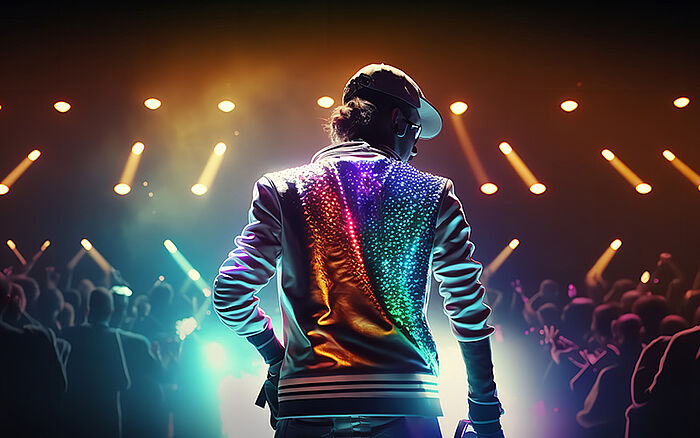
AI-Pocalypse now? IP news from the edge of innovation
The inexorable march of artificial intelligence (AI) and emerging technology (ET) has well and truly reached the world of Intellectual Property (IP). And while at first glance that might sound like the plot of a sci-fi disaster movie as written by a jaded Hollywood chatbot fed exclusively on a diet of Steven Spielberg, it accurately describes this month's roundup of top IP news.
Join us for our first Dennemeyer Tech Time, a new webinar series from Dennemeyer Innovation where we take an in-depth look at disruptive technologies and discuss their impact on the ever-evolving IP industry.
What a piece of work is an inventor
Hamlet may have mused on the nature and condition of humanity with forlorn irony, but the United States Patent and Trademark Office (USPTO) is seeking more concrete answers to what constitutes an inventor than those offered by the heady rhetoric of a depressed Danish prince. Over the coming weeks, the USPTO will hold two hearings of its public "AI Inventorship Listening Session." The first will occur virtually and in person at the USPTO Headquarters in Alexandria, Virginia, on April 25, 2023. While for participants on the West Coast of the United States, a similar event is scheduled for May 8 at Stanford University in Stanford, California.
These listening sessions intend to gather the opinions of "a broad group of stakeholders on the current state of AI technologies and inventorship issues that may arise in view of the advancement of such technologies." Inventors, researchers, business owners, investors and general-purpose human beings are invited to respond to 11 questions dealing with patentability, inventorship and the assignation of IP rights.
Some standouts include:
- Do ownership rights vest solely in the natural person(s) who invented or do those who create, train, maintain, or own the AI system have ownership rights as well? What about those whose information was used to train the AI system?
- Is there a need for the USPTO to expand its current guidance on inventorship to address situations in which AI significantly contributes to an invention? How should the significance of a contribution be assessed?
- What statutory changes, if any, should be considered as to U.S. inventorship law, and what consequences do you foresee for those statutory changes?
- Should AI systems be made eligible to be listed as an inventor? Does allowing AI systems to be listed as an inventor promote and incentivize innovation?

For the first time in history, machines are capable of finding their own technical solutions; but are these AIs just another tool or something different? Legislators and IP offices around the world are looking to their law books to see if and how AI-generated inventions can be patented.
Attendees may register as audience members or join as speakers for a three-minute timeslot to try their hands at these and the many other Gordian legal knots. So, switch off all electronic devices (after finishing this article), take out a pen and some paper and put on your thinking caps.
Mark of Cain: USPTO tackles swell of trademark scams
The theater of patent law is abuzz with commotion, but sadly, all is not well in the state of trademarks. According to data available on the USPTO website, 35 sanctions were issued last year against actors carrying out fraudulent activities related to trademarks. From January 1 to April 21 this year, there have already been 115. Ostensibly, one reason for this massive increase in illegal conduct is the continuing strong performance of legitimate filing actions. Though unlikely to match 2021's impressive tally of 943,928 total trademark filings (sum of all classes applied for), 2023 is showing signs of weathering inflationary pressures admirably, with 176,735 filings submitted in the first quarter.
However, the outlook was less rosy when Bloomberg Law recently interviewed USPTO Deputy Commissioner for Trademark Examination Policy Amy Cotton on the challenges posed by scammers. Her summary was as ominous as it was understandable: "We just weren't built to handle fraud."
But what form do such swindles take? Since most data submitted to an IP office is or, in the case of patent applications, becomes publicly available, criminals are able to contact applicants at their home or business address, claiming to be attorneys or service providers. To enhance the credibility of the fraud, malefactors might include specific references to application serial numbers or registration numbers – again, publicly listed.
Generally, these scams solicit fee payments to complete the application process or settle "past due" fees, sometimes imitating genuine IP experts, sometimes presenting wholly fictitious companies, complete with fancy letterheads and intimidating legalese. The advice from the USPTO: ignore all communications regarding payments if they do not come from the Office itself. Authentic office actions will be sent from the Alexandria, Virginia address or from an email ending: @uspto.gov.

A greater volume of trademark filings inevitably means more scammers can slip their schemes into the mountains of paperwork - even in digital form. Applicants need to be on the lookout for suspicious invoices and offers of legal services.
If you are working with an IP service provider to manage your filing and renewing activities, they will notify you of all office actions. So you should contact them immediately if you receive any purported notice from another business. Abuse of your IP can occur even before you have received a registration, so vigilance is the watchword.
The wrong side of copyright
On a lighter note, have you ever wanted to hear Luciano Pavarotti sing nursery rhymes? Or how about a duet of Ella Fitzgerald and Édith Piaf? For those so inclined, there already exists a plethora of videos of U.S. presidents, living and dead, arguing colorfully over everything from a game of Minecraft to the historical legacies of various Roman Emperors. With AI duplications of the human voice both accessible and accurate, the possibilities for audio fakes are functionally limitless, but the legal and ethical implications are not as permitting.
Take the song "Heart On My Sleeve," recently pulled from streaming services Apple Music, Deezer, Spotify and Tidal for simulating the voices of musicians Drake and The Weeknd. Universal Music Group, which works with both artists through its subsidiary Republic Records, took strong umbrage at what it deemed a violation of its copyrights — specifically, the use of protected works to train the AI generator.
Ostensibly, "Heart On My Sleeve" is an original work by the artist known as @ghostwriter and so does not infringe in the traditional sense any composition owned by Universal Music Group. That said, in a statement issued to Billboard, a representative of the world's largest music corporation threw down a gauntlet that has yet to be picked up. "The training of generative AI using our artists' music (which represents both a breach of our agreements and a violation of copyright law) as well as the availability of infringing content created with generative AI on [digital service providers] DSPs, begs the question as to which side of history all stakeholders in the music ecosystem want to be on: the side of artists, fans and human creative expression, or on the side of deep fakes, fraud and denying artists their due compensation."

AI clones of human voices are setting the stage for a copyright upheaval - and this time, the hype is real! Music companies are banding together to advocate for updated protections to safeguard human creativity and accomplishment.
The IP system has yet to accommodate what AI technology is capable of, if indeed it needs to accommodate it. Though current copyright practice sorely lacks clarity on this point, every instance, particularly those involving high-profile actors, has the potential to shape precedent and future policy. To this end, a coalition of major industry players recently formed the Human Artistry Campaign, an advocacy group that has delivered seven principles to protect works of the imagination. In effect, the declaration calls for a more directed application of existing copyright law, with the bare minimum of amendments necessary to account for – without exempting – AI training actions. Viz:
- Use of copyrighted works, and use of the voices and likenesses of professional performers, requires authorization, licensing, and compliance with all relevant state and federal laws.
- Governments should not create new copyright or other IP exemptions that allow AI developers to exploit creators without permission or compensation.
- Copyright should only protect the unique value of human intellectual creativity.
Love it or hate it, the AI genie is out of the bottle and IP systems will have been able to address it.
Filed in

A country and a supermarket continue their tussle over a trademark. Meanwhile, a study reveals the extent of academic patents in Europe and a publishing house tackles AI.



